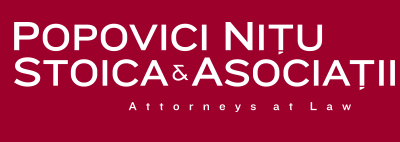- About Us
-
Expertise
- Banking & Finance
- Capital Markets
- Competition & Antitrust
- Corporate & Commercial
- Data Privacy
- Employment & Pensions
- Energy & Natural Resources
- Gambling & Betting
- Healthcare & Pharmaceuticals
- Insurance
- Intellectual Property
- International Arbitration
- Litigation
- Mergers & Acquisitions
- Project Finance/PPP, Concessions & Infrastructure
- Public Procurement
- Real Estate
- Restructuring & Insolvency
- Sports Law
- Tax
- Telecommunications, Media & Technology
- Transports & Logistics
- White Collar Compliance & Defense
- Our team
- Careers
- Publications
- News and Press
- Contact
Articles
A vote for a sheer Copy + Paste when it comes to transposing international legislation (in the field of maternity protection)
In the European and international context regarding maternity protection in the workplace, the Romanian employment legislation ensures a high degree of protection for young mothers, including via prohibiting their dismissal during the legal periods of maternity leave and child care leave.
The Emergency Government Ordinance no. 111/2010 extends this prohibition further, making it apply one time, up to 6 months, after the employee’s permanent return to work. While this legal wording is seemingly difficult to grasp by a layperson, we may confirm that it has often proven to be challenging as well for the rest of the stakeholders (employees, employers, courts and other professionals involved).
Such extension of the legal protection beyond the periods of maternity or child care leave complies, in principle, with the ILO Maternity Protection Convention of 2000. However, art. 8 of the Convention also sets forth a notable exception from this principle, allowing the dismissal in cases not related to childbirth or to the consequences thereof. This exception has been recognized by European legislations such as the French, with the French Labour Code setting a protection period of 4 weeks after the employee’s return to activity, with the following exclusions: serious breach committed by the employee or the impossibility to preserve the position for reasons not connected with the maternity status.
The Romanian legislator, however, has not taken over this exception, establishing only that the prohibition to dismiss after the employee’s return to work shall not apply to cases of judicial reorganization or bankruptcy.
Under these circumstances, the equivocal text of the GEO no. 111/2010 has been raising serious practical problems for employers, leading to atypical HR practices. The most common examples in this respect include employers being compelled to maintain positions which are no longer needed from a business perspective or employers being unable to dismiss employees committing serious disciplinary breaches (who are thus actually being equipped with impunity for their breaches). Similar difficulties arise in cases of professional inappropriateness, where the employers may be put in the position not to take action against underperforming employees in the respective 6-month period.
In order to ensure a balance between the protection of the employees against employer abuse and the various practical situations which may require the termination of employment contracts, the GEO no. 111/2010 should provide for an additional exception to the general protection principle, namely if the dismissals are generated by reasons unrelated to the employees´ maternity status.
So, wishing to praise the legislator for the inspiration got from international regulations, we would nevertheless like to stress that a proper transposal of such regulations into the national law would require not only to “copy” the general rule, but also to “paste” the relevant exceptions for the purpose of ensuring a unitary and consistent application of the rules in the local legislation.
Download Article










